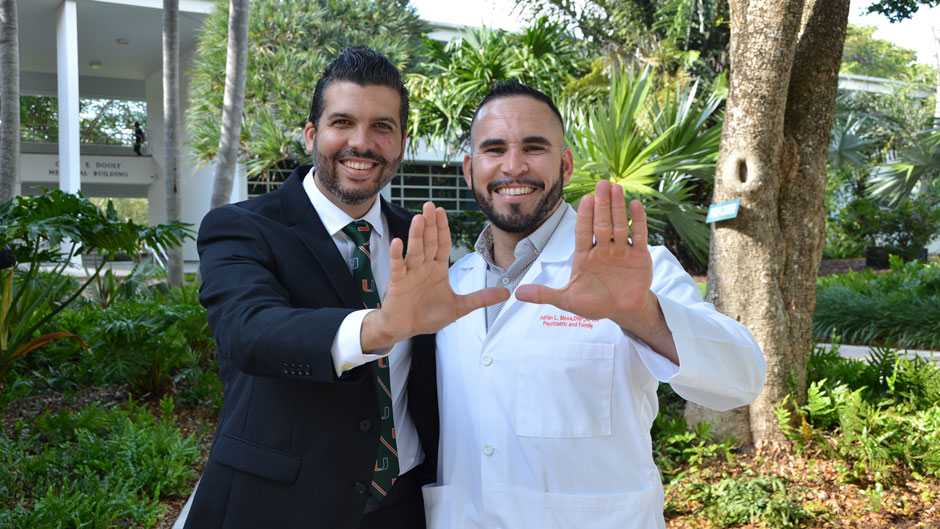Victimized by violence, plagued by weather, and hounded by the woes of poverty, the homeless – society’s “invisible” population – are often snared in a perpetual cycle of illness, hospital visits, treatment, and discharge back onto the streets where what was once a treatable malady often spirals into crisis.
To help remedy this “revolving door” for the thousands of Miami’s homeless men, women, and children, Adrian Mesa, a University of Miami School of Nursing and Health Studies senior lecturer, and Juan M. González, assistant professor of clinical and director of the school’s Family Nurse Practitioner program, have teamed to forge a student-driven, faculty-supported plan that increases access to primary health care for patients living in a state of homelessness.
“The Invisible Community: Connecting Hope and Health in the Miami-Dade Homeless Community” initiative seeks to combat the health inequity that exists in the homeless population, González explained. “Achieving health equity for the homeless in Miami Dade County is an essential public health outcome that strengthens the wellness and vibrancy of our entire community.”
“Exposure to homelessness leads to poor health,” noted Mesa, a family and psychiatric nurse practitioner who has worked with the homeless population for a decade. “People struggling with homelessness have competing needs and co-existing health issues that interfere with them accessing treatment, food, shelter, or health care.”
Citizens Board support
In recognition of its value to the community, the initiative recently received a boost from the University of Miami Citizens Board – its top prize of $25,000. The funds will be used to purchase medical equipment and supplies to screen homeless patients for chronic health conditions.
Engendering empathy through education
The initiative places participating nurse practitioner students, all of whom are already registered nurses licensed to practice in Florida, face to face with the health and social inequities that homeless individuals experience. Understanding such inequities and limitations help these future nurse practitioners provide culturally sensitive care and innovate interventions for a population often struggling with co-existing conditions.
“Many homeless people suffer from secondary issues such as mental health, substance abuse, and sexually transmitted infections (STI),” explained González, a practicing acute care nurse practitioner and certified emergency nurse. “Homeless women in particular are disproportionately affected and are often drawn into commercial sex trafficking to satisfy drug addiction and inadequate housing, leading to the additional spread of STIs.”
The nurses address health concerns ranging from high blood pressure and diabetes to more complex cases, and serve as a safety net, sharing resources and assisting with health-system navigation.
“I am so proud of Drs. Mesa and González for their leadership in this important initiative," said Cindy L. Munro, School of Nursing and Health Studies dean and professor. “They are addressing a critical gap in health care while giving our graduate students matchless hands-on experience delivering frontline care and advocacy in a resource-challenged environment.”
Mesa and González both have previous experience leading clinical outreach efforts in vulnerable communities locally, as well as in the Caribbean and Latin America through the school’s Hemispheric and Global Initiatives.
This program partners with the Miami Homeless Assistance Program, Camillus House, Choose Love Foundation, and Mother Teresa’s Missionaries of Charity, utilizing food distribution activities to reach patients while emphasizing strategic persistence to engender trust among the homeless community and to ensure that multiple on-site visits of homeless clients continue each semester.
“‘The Invisible Community’ assistance program will be integrated into the clinical curriculum,” explained González, “which will perpetuate a constant supply of health care providers for the Miami-Dade homeless population.”

